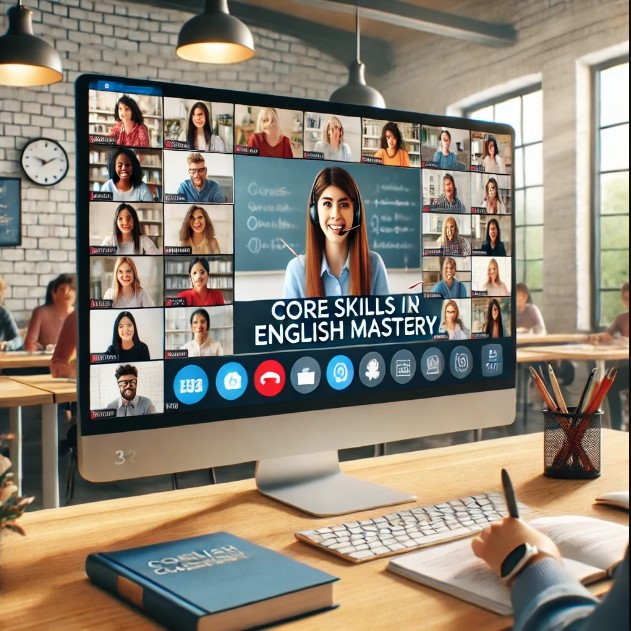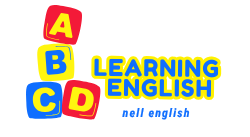Introduction
Unlocking the Power of English
In today’s interconnected world, English has become more than just a language—it’s a bridge to opportunities, knowledge, and global connections. For [Target Audience: e.g., Beginners, Professionals, Business Owners], mastering English opens doors to personal and professional growth. However, many individuals face challenges when it comes to achieving fluency, such as limited practice opportunities, unclear grammar rules, or fear of making mistakes.
This comprehensive guide will walk you through the essential skills and strategies needed to build a solid foundation in English, empowering you to communicate confidently and effectively.
Why English Mastery Matters
- Global Communication: English is the most widely spoken language worldwide, with over 1.5 billion speakers.
- Career Advancement: Proficiency in English is often a prerequisite for high-paying jobs and international business opportunities.
- Access to Knowledge: A significant percentage of online content, research papers, and educational resources are in English.
Core Challenges in Learning English
- Grammar Complexities: Navigating through tenses, sentence structures, and exceptions.
- Pronunciation Hurdles: Mastering diverse accents and phonetic nuances.
- Vocabulary Expansion: Retaining and using new words in context.
- Confidence Building: Overcoming the fear of speaking in public or making errors.
Content Body
Building Blocks of English Mastery

1. Grammar Fundamentals
Understanding grammar is crucial for forming coherent sentences. Here are key areas to focus on:
- Tenses: Learn the 12 tenses and their practical applications.
- Parts of Speech: Familiarize yourself with nouns, verbs, adjectives, adverbs, pronouns, prepositions, conjunctions, and interjections.
- Sentence Structure: Understand subject-verb-object order and complex sentence formation.
Practical Tips:
- Use grammar-checking tools like Grammarly.
- Practice with worksheets and online exercises.
- Break down complex sentences to analyze their structure.
2. Expanding Vocabulary

A rich vocabulary enhances expression and comprehension. To build your vocabulary:
- Daily Word Goals: Learn and use 5-10 new words daily.
- Contextual Learning: Use flashcards with example sentences.
- Read Widely: Explore books, articles, and blogs in English.
Vocabulary can also be expanded through thematic learning. For example, focusing on words related to a particular subject, such as technology, medicine, or art, can deepen understanding and improve contextual usage. Developing an active vocabulary journal where you write down new words, their meanings, and example sentences will also enhance retention.
“For readers looking to improve their comprehension through tailored reading material, Newsela provides articles adapted to various reading levels and subjects. It’s a great way to build vocabulary and analytical skills.”
3. Improving Pronunciation
Accurate pronunciation boosts clarity in communication. Key techniques include:
- Phonetics Practice: Focus on vowel and consonant sounds.
- Listen and Imitate: Mimic native speakers from podcasts or YouTube videos.
- Use Technology: Try apps like Forvo or ELSA Speak.
- Tongue Twisters: Practice with tongue twisters to improve clarity and fluency.
Another effective method is recording yourself reading aloud and comparing your pronunciation with native speakers. Repeated practice will help identify areas for improvement.
- “Teachers seeking strategies to support English learners can find video resources and ideas on the Teaching Channel.”
Tools and Techniques for Effective Learning
Digital Resources
Technology has revolutionized language learning, providing a range of tools and resources to support learners:
- Apps: Duolingo, Babbel, and Memrise for structured learning.
- Websites: BBC Learning English and Purdue OWL for grammar and writing.
- Podcasts: “The English We Speak” or “ESL Pod” for listening skills.
- YouTube Channels: Channels like Learn English with Emma and English Addict with Mr. Steve offer practical lessons and tips.
Community Engagement
Community involvement plays a pivotal role in language learning. Here’s how you can leverage it:
- Join Forums: Platforms like Reddit’s r/EnglishLearning and Quora are great for asking questions and sharing knowledge.
- Language Exchange: Connect with native speakers through apps like Tandem or HelloTalk.
- Local Groups: Participate in meetups or workshops in your area to practice speaking.
Engaging with a community fosters accountability and provides valuable feedback, which is crucial for improvement.
Goal Setting
Having clear and achievable goals is essential for progress. Consider the following approach:
- Short-Term Goals: Set targets such as completing a beginner’s course within three months or mastering 100 new words in a month.
- Long-Term Goals: Aim to achieve fluency within a specific timeframe for professional or travel purposes.
- SMART Goals: Ensure your goals are Specific, Measurable, Achievable, Relevant, and Time-bound.
Breaking down large goals into smaller milestones makes the learning process more manageable and rewarding.
- “Explore interactive tools and detailed lesson plans on ReadWriteThink to enhance your foundational literacy and writing abilities.”
Advanced Tips for Mastery

1. Think in English
One of the most effective ways to achieve fluency is by training your mind to think in English. Start by labeling objects around you in English, then progress to forming simple sentences. Over time, your brain will naturally adapt to processing thoughts in English.
- Text to Write:
“Parents and educators can find strategies to help young readers succeed on Reading Rockets, a trusted source for early literacy resources.”
2. Engage with Media
Immersing yourself in English media is an enjoyable and effective way to improve:
- Movies and TV Shows: Watch with subtitles to follow along and learn new phrases.
- Books and Articles: Read content tailored to your proficiency level. Gradually challenge yourself with more complex materials.
- Podcasts and Audiobooks: Listening regularly will sharpen your comprehension and expose you to different accents.
3. Track Progress
Tracking your progress keeps you motivated and highlights areas needing improvement. Consider:
- Daily Journals: Write about your day or thoughts in English.
- Speaking Practice: Record yourself and compare recordings over time.
- Online Quizzes: Test your knowledge using platforms like Quizlet or Kahoot.
4. Learn Idioms and Phrasal Verbs
Understanding idiomatic expressions and phrasal verbs adds depth to your communication. Incorporate common phrases into your vocabulary, such as “break the ice” or “figure out,” to sound more natural.
- “Understanding grammar is a key component of mastering English. Khan Academy offers free, interactive lessons that cover essential grammar rules step-by-step.”
5. Grammar Deep Dive
For advanced learners, delving into complex grammatical structures is beneficial. Topics like conditional sentences, modal verbs, and relative clauses can elevate your writing and speaking abilities.
Overcoming Common Challenges
Fear of Mistakes
Mistakes are a natural part of learning. Embrace them as opportunities to grow. Practice speaking in low-pressure environments and remind yourself that progress matters more than perfection.
Time Management
Balancing language learning with other responsibilities can be challenging. Dedicate a specific time each day to practice, even if it’s just 20 minutes. Consistency is key.
Plateauing
Reaching a learning plateau can be frustrating. Overcome this by diversifying your learning methods, such as switching from grammar exercises to conversational practice or exploring a new topic.
“For structured learning, the English Foundations Course by Edmentum offers comprehensive modules in vocabulary building, reading comprehension, and writing skills.”
Conclusion
English mastery is a journey, not a destination. By focusing on core skills, leveraging technology, and practicing consistently, [Target Audience] can overcome challenges and achieve their language goals. Remember, every step forward—no matter how small—brings you closer to fluency. Start today and unlock a world of opportunities!

